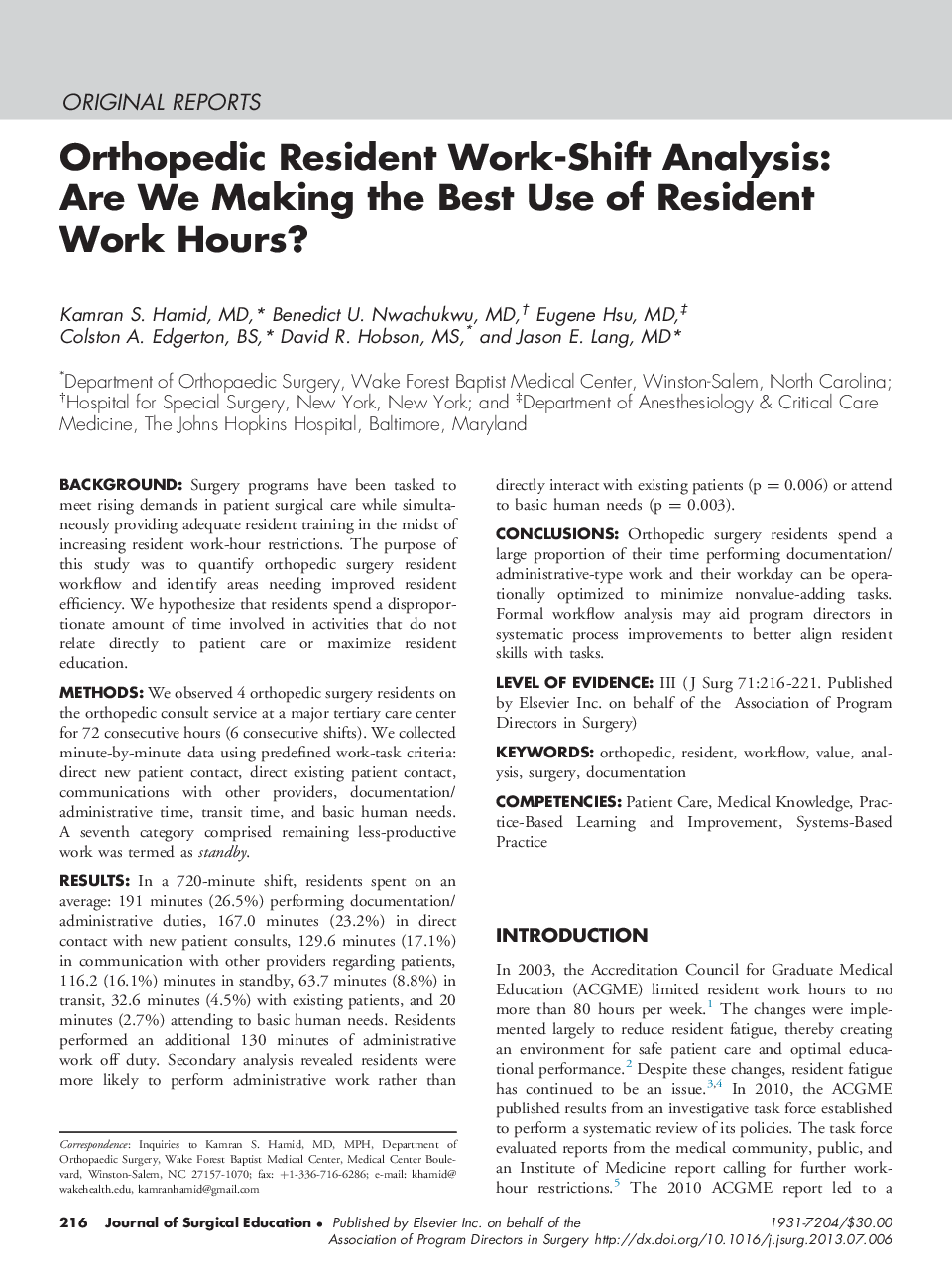| کد مقاله | کد نشریه | سال انتشار | مقاله انگلیسی | نسخه تمام متن |
|---|---|---|---|---|
| 4297606 | 1288325 | 2014 | 6 صفحه PDF | دانلود رایگان |
BackgroundSurgery programs have been tasked to meet rising demands in patient surgical care while simultaneously providing adequate resident training in the midst of increasing resident work-hour restrictions. The purpose of this study was to quantify orthopedic surgery resident workflow and identify areas needing improved resident efficiency. We hypothesize that residents spend a disproportionate amount of time involved in activities that do not relate directly to patient care or maximize resident education.MethodsWe observed 4 orthopedic surgery residents on the orthopedic consult service at a major tertiary care center for 72 consecutive hours (6 consecutive shifts). We collected minute-by-minute data using predefined work-task criteria: direct new patient contact, direct existing patient contact, communications with other providers, documentation/administrative time, transit time, and basic human needs. A seventh category comprised remaining less-productive work was termed as standby.ResultsIn a 720-minute shift, residents spent on an average: 191 minutes (26.5%) performing documentation/administrative duties, 167.0 minutes (23.2%) in direct contact with new patient consults, 129.6 minutes (17.1%) in communication with other providers regarding patients, 116.2 (16.1%) minutes in standby, 63.7 minutes (8.8%) in transit, 32.6 minutes (4.5%) with existing patients, and 20 minutes (2.7%) attending to basic human needs. Residents performed an additional 130 minutes of administrative work off duty. Secondary analysis revealed residents were more likely to perform administrative work rather than directly interact with existing patients (p = 0.006) or attend to basic human needs (p = 0.003).ConclusionsOrthopedic surgery residents spend a large proportion of their time performing documentation/administrative-type work and their workday can be operationally optimized to minimize nonvalue-adding tasks. Formal workflow analysis may aid program directors in systematic process improvements to better align resident skills with tasks.Level of EvidenceIII
Journal: Journal of Surgical Education - Volume 71, Issue 2, March–April 2014, Pages 216–221
